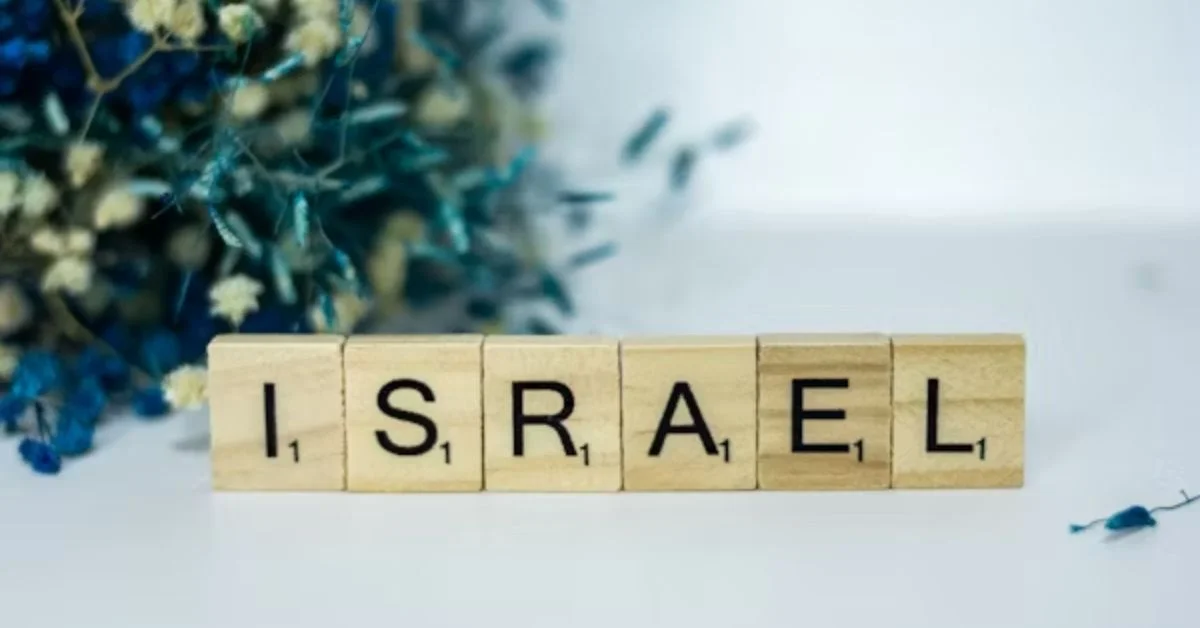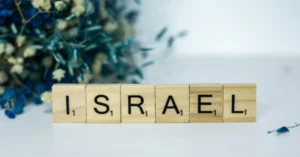The subject of inheritance is deeply tied to family, culture, and law. It is not simply about the transfer of property but also about honoring wishes, preserving justice, and ensuring that family members receive what the law or the deceased intended. In Israel, the system of inheritance law is a combination of modern legislation and cultural traditions. A particularly important issue within this field is the revocation of a will and inheritance rights.
This article provides in-depth exploration of Israeli will inheritance revocation. We will examine its meaning, legal framework, procedures, conditions under which a will may be revoked, the rights of heirs, practical examples, and the long-term implications for families. We will also highlight important lessons and responsibilities for individuals planning their estates in Israel.
Understanding Inheritance in Israel
Inheritance law in Israel is governed primarily by the Israeli Inheritance Law of 1965, which outlines how estates are managed, divided, and distributed. A person may leave instructions in a will, and if no will exists, inheritance is determined by statutory succession laws.
In this system, a will is considered the strongest expression of a person’s wishes regarding the division of their estate. However, like any legal instrument, a will can be challenged or even revoked if it does not meet certain standards or if particular circumstances apply.
Table: Basic Inheritance Framework in Israel
| Scenario | Result |
|---|---|
| Valid will exists | Estate is divided according to the instructions of the will. |
| No will exists | Estate is distributed by statutory succession (spouse, children, parents). |
| Will revoked/invalidated | Estate falls back to statutory inheritance or a prior valid will. |
This framework highlights why revocation issues are so critical—because they directly determine whether heirs inherit by will or by law.
What Does Revocation of a Will Mean?
Revocation refers to the legal cancellation of a will, rendering it void and unenforceable. Once revoked, the will cannot be executed, and the estate must either rely on a previous valid will (if it exists) or fall under the rules of intestate succession (inheritance without a will).
There are two main types of revocation:
- Voluntary Revocation by the Testator
- When the person who created the will (the testator) decides to cancel or replace it during their lifetime.
- Involuntary Revocation by Legal Process
- When courts or legal authorities revoke the will due to legal defects, fraud, coercion, or invalid circumstances.
Grounds for Revocation of an Israeli Will
Revocation is not automatic. Specific conditions must exist for a court to revoke a will. These grounds typically fall into several categories:
- Improper Formalities
- Wills must follow strict formats (handwritten, witnessed, or made before authorities). Failure to comply may render them void.
- Lack of Mental Capacity
- If the testator was not of sound mind or unable to understand the consequences when creating the will, revocation may occur.
- Undue Influence or Coercion
- A will made under pressure, manipulation, or coercion can be invalidated.
- Fraud or Misrepresentation
- If the will was created based on false information or fraudulent conduct, it can be revoked.
- Contradictory Wills
- If multiple wills exist, the most recent valid one revokes earlier versions unless stated otherwise.
- Revocation by Action
- Destroying the will document intentionally can act as a revocation.
Table: Grounds for Revocation
| Ground | Explanation |
|---|---|
| Improper formalities | Incorrect signing/witnessing invalidates will. |
| Mental incapacity | Lack of understanding at the time of creation. |
| Undue influence | External pressure compromises free will. |
| Fraud or deception | False facts or trickery used in drafting will. |
| Newer will created | Later valid will replaces earlier versions. |
| Physical destruction | Will destroyed intentionally by testator. |
Legal Procedures for Will Revocation in Israel
The revocation process in Israel is subject to judicial scrutiny and requires clear legal steps:
- Filing a Claim: Heirs or interested parties must file a petition in the family court or inheritance registrar’s office.
- Evidence Submission: Parties must provide evidence such as medical records, witness testimony, or proof of fraud/coercion.
- Court Examination: The court carefully evaluates whether legal grounds exist.
- Decision: If the will is revoked, the estate is redistributed under statutory rules or based on an earlier valid will.
This process ensures that revocation cannot be used frivolously but is applied only in justified cases.

Implications for Heirs: Israeli Will Inheritance Revocation
The revocation of a will has significant consequences for heirs.
- Uncertainty: Heirs may face delays and uncertainty until final decisions are made.
- Redistribution: Assets may be divided differently, with statutory heirs gaining more than intended beneficiaries.
- Family Conflicts: Revocation often sparks disputes among family members.
- Financial Impact: Legal costs, delays, and altered distributions affect financial planning.
Example: Israeli Will Inheritance Revocation
If a testator leaves most assets to one child but the will is revoked due to improper formalities, the assets may instead be distributed equally among all children and the spouse under statutory law.
Rights of Heirs in Revocation Cases: Israeli will inheritance revocation
Heirs have certain rights to protect their interests when will revocation issues arise. These include:
- Right to Contest: Heirs can challenge the validity of a will if they suspect wrongdoing.
- Right to Evidence: They may access medical reports, testimonies, and documentation to support their claims.
- Right to Appeal: If dissatisfied with a decision, heirs can appeal to higher courts.
- Right to Representation: Heirs can hire legal professionals specializing in inheritance law to safeguard their claims.
These rights empower heirs to actively participate in revocation disputes.
Preventing Revocation Disputes: Israeli will inheritance revocation
For individuals preparing wills, avoiding revocation disputes is crucial. Best practices include:
- Proper Drafting: Using a lawyer ensures compliance with formalities.
- Medical Confirmation: Obtaining a doctor’s statement about mental capacity strengthens validity.
- Transparency: Informing heirs about intentions reduces surprises and conflicts.
- Secure Storage: Keeping the will in official registries prevents loss or tampering.
- Updating Regularly: Revising the will when circumstances change reduces contradictions.
Table: Preventive Measures
| Measure | Benefit |
|---|---|
| Draft with lawyer | Ensures legal compliance and clarity. |
| Medical confirmation | Protects against claims of incapacity. |
| Transparency | Reduces disputes by clarifying intentions. |
| Secure storage | Prevents destruction or tampering. |
| Regular updates | Avoids contradictions with outdated wills. |
Case Examples (Hypothetical): Israeli will inheritance revocation
- Case 1: Mental Capacity Challenge
A man leaves his estate to a caregiver. Children contest the will, arguing he lacked mental capacity. Court revokes the will after medical records show dementia. - Case 2: Multiple Wills
Two wills exist: one from 2000 and another from 2015. The newer will leaves property to a spouse. The court accepts the later will, revoking the earlier one. - Case 3: Fraudulent Influence
A relative pressures the testator into signing a will under duress. Witness testimonies prove coercion, leading to revocation.
These examples illustrate how revocation plays out in real disputes.
Ethical and Cultural Considerations
In Israel, inheritance is not just legal but also cultural and ethical. Revocation cases often touch on sensitive family values and respect for the deceased’s wishes. Courts strive to balance legal accuracy with fairness, ensuring that justice aligns with cultural expectations of honoring loved ones.
Future of Inheritance Revocation in Israel
The digital age is introducing new complexities:
- Digital Wills: As more wills are stored electronically, questions arise about validity and destruction.
- Global Families: Cross-border inheritance issues complicate revocation when heirs live abroad.
- AI and Documentation: Technology may reduce disputes by improving transparency but also raises new legal challenges.
These developments suggest that Israeli inheritance law will continue evolving to meet modern demands.
Conclusion: Israeli will inheritance revocation
Israeli will inheritance revocation is a critical issue that blends law, family, and ethics. It ensures that wills are respected when valid but also protects heirs when irregularities occur. By understanding the legal grounds, procedures, and implications, individuals can better prepare their estates, and heirs can safeguard their rights.
The lessons from revocation cases highlight the importance of clarity, transparency, and professional guidance. Ultimately, the goal of inheritance law in Israel is to ensure fairness, protect family bonds, and honor the true intentions of the deceased.
Frequently Asked Questions (FAQs): Israeli will inheritance revocation
Q1: What does revocation of a will mean in Israel?
It means legally canceling a will so it cannot be executed, returning inheritance to statutory laws or earlier wills.
Q2: What are common grounds for revoking a will in Israel?
Grounds include improper formalities, lack of mental capacity, fraud, coercion, or contradictions with later wills.
Q3: Who can contest a will’s validity in Israel?
Heirs, beneficiaries, or any party with a legal interest can contest a will in court.
Q4: How can someone prevent disputes about their will?
Proper drafting, medical confirmation, secure storage, transparency, and regular updates reduce the risk of revocation disputes.
Q5: What happens if a will is revoked in Israel?
The estate is redistributed under statutory succession laws or a prior valid will, changing the intended inheritance division.
For more information, click here.









